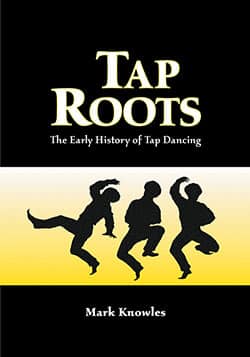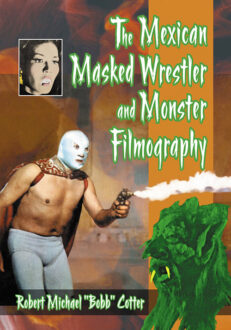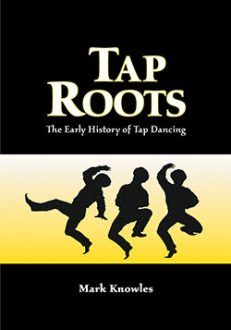Tap Roots
The Early History of Tap Dancing
$39.95
In stock
About the Book
Tracing the development of tap dancing from ancient India to the Broadway stage in 1903, when the word “Tap” was first used in publicity to describe this new American style of dance, this text separates the cultural, societal and historical events that influenced the development of Tap dancing. Section One covers primary influences such as Irish step dancing, English clog dancing and African dancing. Section Two covers theatrical influences (early theatrical developments, “Daddy” Rice, the Virginia Minstrels) and Section Three covers various other influences (Native American, German and Shaker). Also included are accounts of the people present at tap’s inception and how various styles of dance were mixed to create a new art form.
About the Author(s)
Bibliographic Details
Mark Knowles
Format: softcover (7 x 10)
Pages: 283
Bibliographic Info: 124 photos, notes, bibliography, index
Copyright Date: 2002
pISBN: 978-0-7864-1267-9
Imprint: McFarland
Table of Contents
Acknowledgments vii
List of Illustrations xi
Preface 1
PART I: PRIMARY INFLUENCES
1 Irish Influences 7
2 English Influences 15
3 African Influences 22
4 Dance in the West Indies 27
5 Dance in New Orleans 34
6 Dance on the Plantation 38
7 Slave Religion and the Ring Shout 55
8 Dispersion of African-American Dances 63
PART II. THEATRICAL INFLUENCES
9 Early Theatrical Developments 73
10 “Daddy” Rice 78
11 The King of Diamonds and Master Juba 86
12 The Virginia Minstrels 93
13 The Development of the Minstrel Show 100
14 Black Minstrelsy and Musical Theatre 117
15 Other Forms of Entertainment 127
16 Vaudeville 135
17 English Music Hall 150
18 Women on the Stage 156
PART III: OTHER INFLUENCES
19 Indian, Gypsy, and Spanish Influences 167
20 German and Shaker Influences 174
21 Native American Influences 182
22 American Country Dance 190
23 Conclusions 200
Notes 211
Bibliography 249
Index 259
Book Reviews & Awards
- Choice Outstanding Academic Title
- “extensive research…recommended…will satisfy readers who would like more early history”—Library Journal
- “photos are outstanding…a superior contribution…more than commendable, it’s indispensable…fascinating”—Classic Images
- “this lively and engaging book embodies the vitality, energy, and syncopated rhythm of the dance form it discusses…an excellent resource guide”—Choice
- “comprehensive…highly readable”—Dance Spirit
- “represents some of most extensive and contemporary writings available on the subject…definitive”—Dancer





